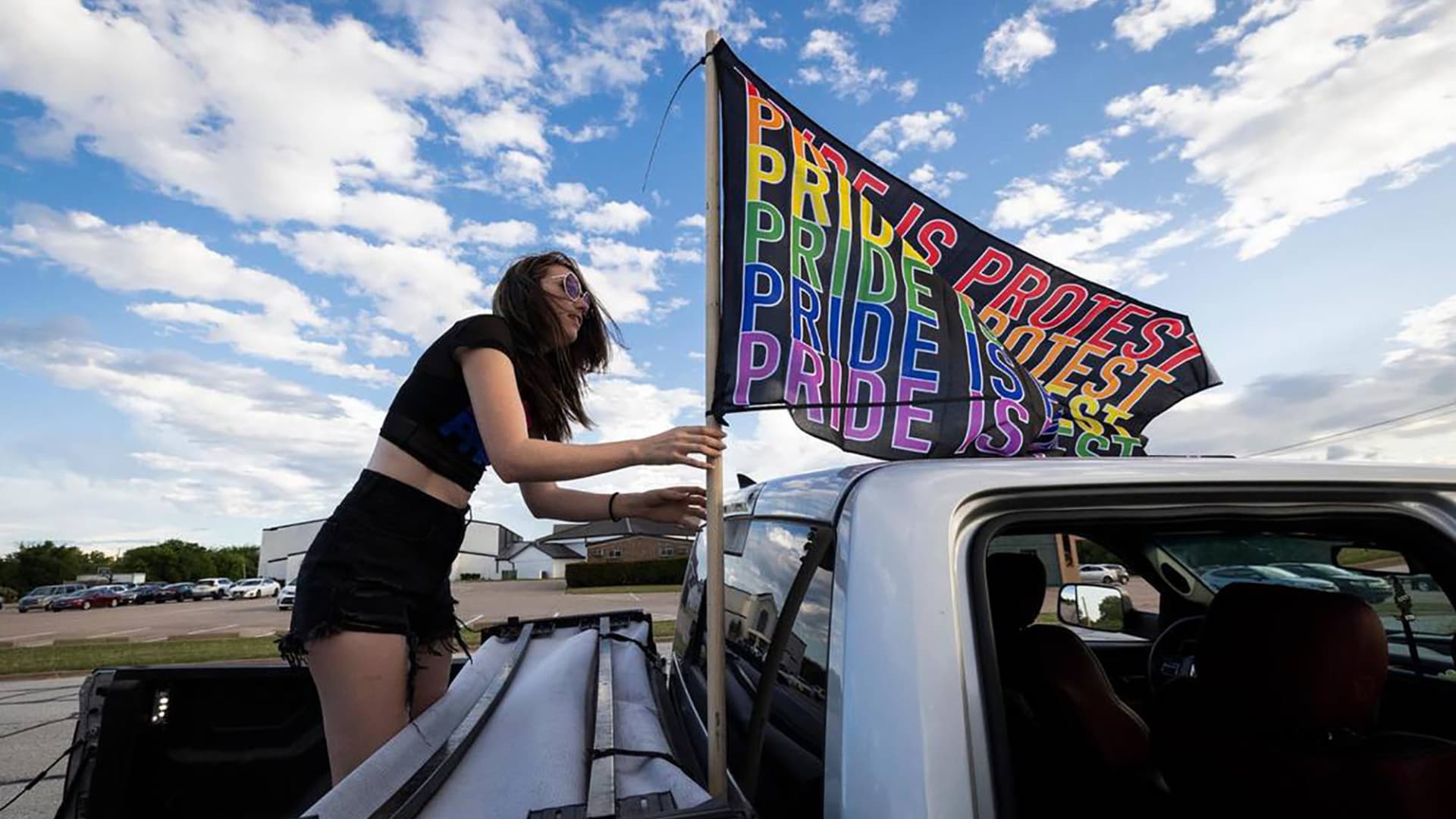
The Texas State Capitol in Austin, Texas.
- Texas finishes out of the top five for the first time in the history of CNBC’s America's Top States for Business.
- Texas’ rankings declined in key categories including Infrastructure, Education, and Life, Health & Inclusion, but it continues to be a leader in Economy and Workforce.
- Power grid issues, rising crime, poor health care, and a rollback of diversity, equity and inclusion, all contributed to the declines.
Watch NBC 5 free wherever you are
CNBC's America's Top States for Business study has ranked all 50 states through recessions, a global financial crisis, a pandemic, and more. Each time, Texas has finished in the top five, including first place finishes in 2008, 2010, 2012 and 2018.
But in 2023, for the first time since the study launched in 2007, The Lone Star State missed the mark.
Get top local stories in DFW delivered to you every morning with NBC DFW's News Headlines newsletter.
It is a near-miss — Texas finished in sixth place — trailing fifth-place Minnesota by just five points. But it is significant nonetheless, reflecting the stresses hitting pretty much every state economy, from worker shortages to climate change to culture wars. And in Texas, America's second-largest state economy after California, everything truly is bigger.
To be sure, the CNBC competitiveness rankings show that Texas is still a powerhouse. It has the second-best Economy ranking after Florida. Jobs grew by 4% year-over-year through May, more than any other state.
Money Report
This year, Texas ties for No. 1 in Access to Capital — the first state ever to rival perennial category leader California — with abundant financing for small businesses. And it finishes second in the all-important Workforce category, trailing only overall Top State North Carolina, as educated workers pour in, according to Census data.
They include Quintin and Shavonne Bonner, originally from Chicago, who could have moved anywhere after Quintin ended an eleven-year career in the Army last month. They chose Fort Worth. Quintin, now an insurance agent, and Shavonne, a registered nurse, said they both had full-time jobs within a week, and they just closed on a new home.
"I'm looking at the economical factors like no state taxes, extremely veteran-friendly," Quintin said. "A lot to do for our kids — we have two daughters. And that just was the icing on the cake."
"People and businesses vote with their feet, and continually they are choosing to move to Texas more than any other state in the country," a spokesman for Gov. Abbott stated in an email to CNBC.
He cited the state's national lead in job creation, attracting more than 280 new corporate headquarters since 2015, and being a perennial leader in economic development projects compared to other states.
"Texas remains number one because people and businesses are choosing our state over any other for the unmatched competitive advantages we offer: no corporate or personal income taxes, a predictable regulatory climate, and a young, skilled, diverse and growing workforce," the spokesman wrote.
Growing Texas population faces growing problems
But for all of Texas' strengths, serious problems are worsening in other areas measured by the CNBC study. That includes Infrastructure, the second-most important category under this year's methodology. Texas falls to No. 24 in the category this year, from No. 15 in 2022.
The massive power outages in 2021 that left millions of Texans without electricity for days in subfreezing temperatures and killed more than 200 people also exposed serious weaknesses in the state's power grid. At a time when advanced manufacturing companies are prioritizing reliable power, Texans are enduring nearly 20 hours without electricity per year. That is the third-worst in the nation, according to Energy Department data.

The state's water utilities need more than $61 billion in repairs over the next 20 years, according to the EPA. That is second only to California. And with nearly one-fifth of properties in the state at risk of flooding in the next 30 years, according to analysis prepared for CNBC by First Street Foundation, Texas' infrastructure scores poorly for sustainability.
Texas drops to No. 35 for Education, from No. 21 in 2022. Per-pupil spending is among the nation's lowest, according to the National Education Association. K-12 test scores are lagging, according to U.S. Department of Education data.
While Texas often touts savings, including no state income or corporate tax, it is far from the least expensive place to live, or do business in. With high wages and rising rents, the state declines to No. 16 in Cost of Doing Business from No. 12 in 2022. Higher housing costs drop the state to No. 22 for Cost of Living, compared to No. 14 last year.
Measuring Texas' quality of life
Texas' biggest weakness in 2023 is also its most controversial. The state finishes dead last in Life, Health & Inclusion, dropping from No. 49 last year.
Health care in the state is poor, according to the United Health Foundation, which ranks the state No. 50 for clinical care, and No. 47 for access to primary care physicians. No state has a greater percentage of residents without health insurance.
Violent crime is on the rise, jumping roughly 10% between 2018 and 2021, according to FBI statistics.
And for all of Texas' success in attracting workers to the state, some are leaving. They include Homero and Camille Rey of Germantown, Maryland, who said they left Texas in 2021 to protect their transgender son, Leon.
"We needed to leave Texas because it was not a safe place for us," Camille Rey said in an interview. "It was not a place where Leon could be himself."
She said that the clincher was a bill introduced in 2021 that would have classified gender-affirming health care for minors as child abuse. The bill passed the State Senate, but it died in the House. Even so, Rey said the handwriting was on the wall.
"The law didn't pass, but the governor did instruct, through the attorney general, for Child Protective Services to begin investigating parents of transgender youth for child abuse," she said.
After that, Rey said that she and other parents of transgender children began carrying documents to prove that they were good parents, just in case.
"Can you imagine if you, as a parent, have to carry a folder that says, 'I'm a good parent, don't take my kid away?' I mean, I can't have my future and my kids' future resting on a manila envelope," she said.

Camille Rey is a science writer, and her husband is a bio-scientist, working in professions that Texas has been seeking to boost.
"The industries that Texas is trying really hard to attract are biotechnology industries, the startup companies, and the other kinds of tech," she said. "You have to create a friendly environment for the employees, because without the employees, the companies are not going to want to go there."
A Texas appeals court has blocked the child abuse investigations, at least for now. But the state crackdown on LGBTQ+ rights has escalated. In June, Gov. Greg Abbott signed laws banning transgender care for minors, and restricting transgender women from competing in college sports.
Beyond the LGBTQ+ crackdown, the state outlawed diversity, equity and inclusion offices at state-funded colleges and universities. And even before this year's barrage of new laws, Texas was one of only five states with no antidiscrimination laws protecting non-disabled people, according to the National Conference of State Legislatures.
Then, there is the state's abortion ban, among the strictest in the nation. The CNBC study takes state abortion laws into consideration as a metric in Life, Health & Inclusion in 2023.
Is Texas big enough for everyone?
Quintin and Shavonne Bonner, the newly minted Fort Worth residents, think most of the controversies are overblown in the media.
"Most issues that people bring up, I feel like, are portrayed to be bigger than what they think it is, to just to create more division," Quintin said.
The Bonners said they are conservatives, and that most of Texas' policies align with their views. But Shavonne said that there is room in the state for everyone.
"I feel like everybody's welcome in Texas," she said. "And if you feel like your beliefs, or your lifestyle, isn't adequate to what Texans believe, then maybe you can be the change."
But Camille Rey said that she and her family are happier in Maryland, and Leon, now 10, is thriving.
Not everything about their new life is an improvement, however.
"We've practically doubled our mortgage. It's a whole different level," she said. "And it's been really difficult to not be able to afford summer camp, and just a lot of things that we would be doing if we were in Texas."
Even so, they are not looking back.
"Your child is worth every sacrifice," she said.






